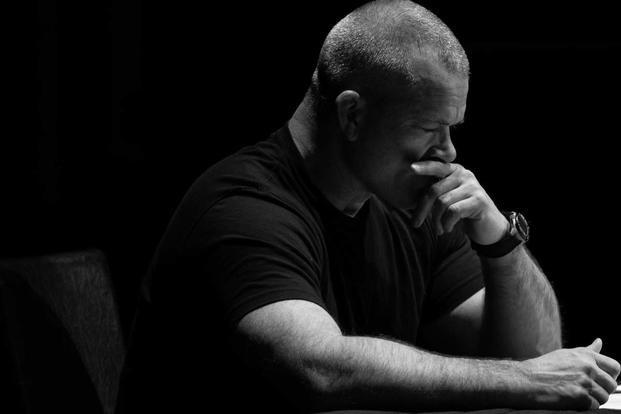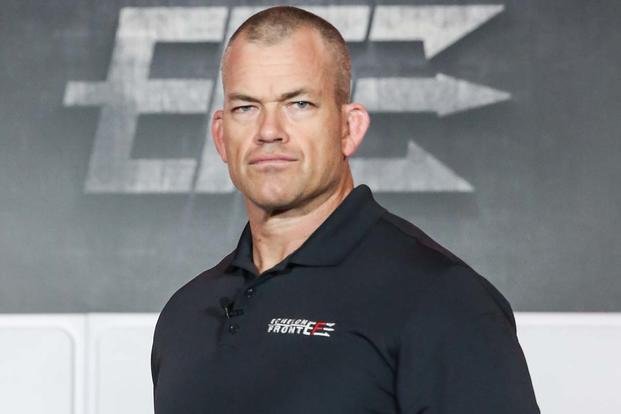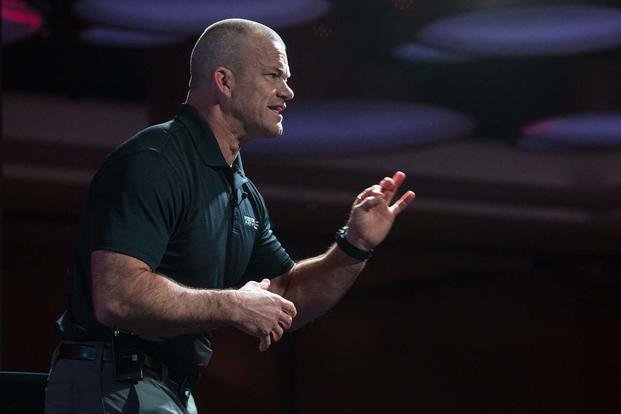Jocko Willink didn’t have trouble with his transition out of the military. Anyone who has followed the former Navy SEAL via his books, his podcast, his leadership consulting company or his Twitter feed won’t find that surprising.
Now in his latest book, “The Code. the Evaluation. the Protocols: Striving to Become an Eminently Qualified Human,” he talks about handling the stressful, unexpected or overwhelming things life throws at us. He talks about the book during a recent Q&A on Amazon Live.
For military members and veterans, that could be a lot of different things. His new book offers reasons why having a protocol for what to do can help you in any kind of emergency — just like the protocols used by the military.
“It’s good to have protocols for certain situations in life,” he says. “I ended up writing some pretty basic protocols for the things that happen in our lives that can catch you off guard. We’ve all been in situations like that and some of us might struggle to know what to do.”
While the date a veteran leaves the military isn’t something that will surprise them, there may be a lot surrounding a transition that will. Let Jocko Willink be your spirit guide.
1. Get a New Mission
When transitioning to civilian life, the most important thing, in Jocko’s view, is finding a new mission and focusing on that. He went right into his discussions about leadership and began to write his seminal work with fellow SEAL Leif Babin, “Extreme Ownership: How U.S. Navy SEALs Lead and Win.”
“With veterans, what I tell veterans all the time is find a new mission,” he says. “When you’re in the military, you have a mission. When you get out of the military, all of a sudden that mission is gone. And just like any other military mission, you need to do some contingency planning and figure out what’s going to happen when you get out.”
2. Be Humble
A lot of the lessons you learn in the military are applicable to the civilian world, he says, but that’s no reason to walk around like you know everything. The truth is that you don’t, and you should act like it.
“The most important thing to remember when you get out of the military is to remain humble and that’s a good piece of advice for life in general,” Willink says. “You’ve got some valuable experience, some valuable capabilities, but you also want to remain humble when you enter the civilian workforce. We all have a lot to learn.”

3. Set Goals
Even Jocko Willink needs a little help sometimes. By his own admission, he’s got a thousand ideas in his head for what he’s going to do creatively. But he also has a thousand tasks to do every day. For a guy who’s constantly on the move from the time he wakes up (around 4:30 a.m. every day, you’ll see a tweet of his wristwatch), he prioritizes his next moves.
But if he needs to keep it in the front of his mind, even if he writes it down — so he can get at them..
“If you have things you need to get done, a great step is to write them down,” he says. “Before you go to bed at night, write the things down that you have to do the next day, then — real simple — get up and do them.”
4. Handle Stress
Like everything else, the former Navy SEAL prioritizes his stressors. He does that by categorizing them and handling them as they come. The mindset is simple: he does not shy away from his problems and neither should you.
“The two categories that I put stress in are coming from two sources: things that I can control and things I cannot control,” he says. “If it’s things that I cannot control, I’m going to mitigate them as much as possible and I’m not going to worry about them. If it’s something I can control, I’m going to attack those problems and get them solved. Hiding from problems and stress causes more problems than the problems and stress.”
5. Focus
Like everything else in life, concentrating on the issue at hand makes you an effective leader or part of a team. For a veteran going through transition, prioritizing the hundreds of small and large tasks ahead of you not only saves time, but it can save headache — and possibly cash. Multitasking is very difficult to do effectively.
“One of the laws of combat we wrote about in ‘Extreme Ownership’ is prioritize and execute, Willink says “You’re gonna have multiple problems on the battlefield, in business or in life and if you try to solve them all at the same time, you won’t be able to do it. Focus on one thing, get that moving in the right direction, put your resources at it, once you’ve got that thing moving in the right direction, then focus on the next thing.”

6. Acquire Discipline
One of the trademarks of Jocko’s podcast and his entire worldview is “discipline equals freedom” (it was even the title of one of his books). By that he means discipline in any area will lead you to freedom in that area.
Want to get more stuff done? Don’t waste your time with an endless stream of YouTube videos. Want financial freedom? Don’t buy thousands of dollars worth of audio gear for a band you don’t have. Simple. How do you know if you’ve attained the discipline required to move toward freedom? Watch yourself.
“You have to look at people to know them, and to see if someone is disciplined, you look at them and say, ‘Do they do things that someone might not necessarily want to do?'” he says. “There’s almost no one that loves to spring out of bed in the morning — so are they getting up early? Are they taking the tasks that are difficult and attacking them or are they shying off and procrastinating?”
7. Become The Eminently Qualified Human
Where does all this discipline and hard work get you? Into the top 1% of people, he says. That doesn’t mean you join the billionaire class (yet, perhaps), it just means you are in the top tier of human personal performance, the Eminently Qualified Human, and that’s what his latest book is about.
It was during the Battle of Ramadi that Willink noticed a Marine filling out an evaluation form for one of his troops. It struck the Navy SEAL that the highest evaluation a Marine could get was the title of “Eminently Qualified Marine.” It stuck with him all these years until he realized that being in the top 1% could apply to civilians as well.
He calls it the “Eminently Qualified Human,” and it’s not just a standard one can set for themselves, it could be the secret to overcoming the myriad hardships associated with transitioning into civilian life.
https://www.military.com/veteran-jobs/navy-seal-jocko-willinks-7-ways-veterans-can-own-their-transition.html


Leave a Reply
You must be logged in to post a comment.